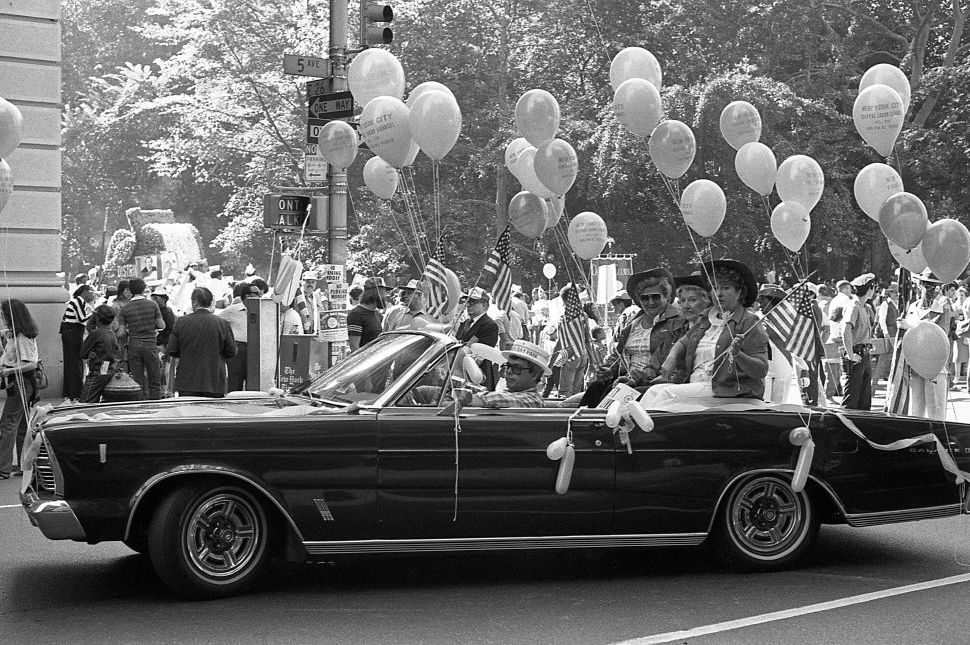Peter McGuire and Matthew Maguire had much in common. Their last names are obviously similar. They were both passionate activists who fought for American labor rights in the 19th century. They both attended the first Labor Day parade in New York City in 1882. And, more controversially, both men have been described as the father of Labor Day.

A federal holiday since 1894, Labor Day is an annual recognition of the American labor movement and celebration of the economic and social achievements of American workers. Held the first Monday of each September, this year’s holiday is September 4.
Peter McGuire has long been credited with first proposing the idea of Labor Day as a federal holiday in 1882. But this claim has been contested for more than a century, and recently unearthed evidence suggests Maguire—that is, Matthew—is the true founder of the national holiday.
Who Was Peter McGuire?
Peter McGuire cofounded the United Brotherhood of Carpenters in 1881 as well as the group that became the American Federation of Labor (AFL). Through these organizations, he helped lead the strikes of 1886 and 1890 that ultimately lead the eight-hour workday.
“McGuire probably did more than anyone else to convince skeptical, locally minded union activists around the country that a national labor federation was not only necessary but also possible,” according to the AFL-CIO. “Without his tireless enthusiasm and practical example, the creation of the AFL and its survival through its early years are practically inconceivable.”
Legend has it McGuire proposed the idea of Labor Day to the New York Central Labor Union on May 12, 1882, suggesting it should be “be celebrated by a street parade which would publicly show the strength and esprit de corps of the trade and labor organizations,” according to the U.S. Labor Department.
The Peter J. McGuire Memorial and Gravesite in Pennsauken, New Jersey, is included on the National Register of Historic Places. His gravestone and statue are both inscribed with the words “Father of Labor Day,” and each year labor leaders and community members gather there to commemorate the holiday.
Matthew Maguire served as secretary for the Machinists and Blacksmiths Union’s Paterson Local 344 and the Central Labor Union of New York, which organized the first Labor Day parade. Like McGuire, he was passionate about improving working conditions for workers, and led strikes in the 1870s for a shorter work week.
Maguire’s work brought significant public awareness to the long hours and difficult conditions manufacturing workers endured, according to the Labor Department. Maguire continued to bring attention to labor issues when he ran for vice president of the United States on the Socialist Labor Party ticket with Charles H. Matchett in 1896, the year William McKinley was elected president.
Maguire sent out the invitations for the first Labor Day parade in 1882, and rode in the first carriage at the head of the parade along with his wife. This, along with several recently unearthed pieces of historical evidence, suggest he might be the true father of Labor Day, not McGuire.
For example, after President Grover Cleveland signed the bill into law establishing Labor Day, the Morning Call newspaper published an opinion piece, “Honor to Whom Honor is Due,” which read “the souvenir pen should go to Alderman Matthew Maguire of this city, who is the undisputed author of Labor Day as a holiday,” according to the New Jersey Historical Society.
William S. Walsh’s 1898 book, Curiosities of Popular Customs, also credits Maguire with establishing the holiday, saying he “was made chairman of the committee to arrange for the first labor day celebration” in 1882. In 1912, B.E. and E.B. Stevenson wrote in their book Days and Deeds: “To Matthew Maguire, Secretary of the Central Labor Council of New York City belongs the credit for first actually putting the idea into execution”.
Additionally, researchers from the genealogy website MyHeritage announced in 2020 they uncovered records indicating his involvement with establishing the holiday. This includes a 1917 interment card from his burial at the Holy Sepulchre Cemetery in Totowa, New Jersey, with a handwritten message that reads: “This man founded Labor Day.”
So Who Is the True Father of Labor Day?
So why is McGuire remembered as the father of Labor Day, rather than Maguire? The answer could be Maguire’s socialist politics. AFL cofounder Samuel Gompers might not have wanted Labor Day associated with Maguire’s radical politics, so in an 1897 interview, he credited McGuire with organizing the holiday instead, according to the Labor Department and the New Jersey Historical Society.
The differences in personality between the two men might also be a factor. Bill Collins, a retired history teacher and Maguire’s great-grandson, said Maguire was a reserved person who focused primarily on seeking justice for workers, while McGuire was more concerned about his legacy and perfectly willing to take credit for Labor Day.
“It really has to do with the different personalities of the two men—one an extrovert, one an introvert, one self-serving, and the other not,” Collins told The New York Times.
Even as new evidence mounts for Maguire’s case, McGuire remains credited as the father of Labor Day by most sources, including the Labor Department. As Collins observed, however, both men made important contributions for the cause of American labor, and deserve to be associated with the holiday.
“Both of them were working for the same goal: an eight-hour workday for workers and a holiday to celebrate the laboring-class people,” Collins said. “In the long run, it really doesn’t matter. We have Labor Day.”



-min.png)